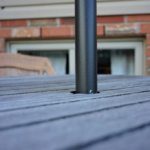Retirement is a time to embrace new freedoms, but staying active and healthy remains essential to fully enjoy this chapter of life. Without the daily routines of work, it’s easy to become sedentary or neglect your physical and mental well-being. Fortunately, with the right habits and mindset, you can make your retirement years some of your healthiest yet.
The Importance of Staying Active in Retirement
Staying physically and mentally active in retirement offers numerous benefits, including:
- Improved Longevity: Regular activity reduces the risk of chronic illnesses like heart disease and diabetes.
- Mental Sharpness: Staying engaged mentally can prevent cognitive decline and support emotional well-being.
- Social Connections: Group activities, exercise classes, and hobbies help retirees maintain a sense of community.
Whether it’s walking, gardening, or pursuing new interests, staying active helps you feel energized, confident, and independent.
Build an Enjoyable Fitness Routine
A fitness routine doesn’t have to be intense to be effective. Focus on activities you enjoy to ensure consistency:
- Walking: A daily walk is low-impact, free, and excellent for heart health.
- Swimming: Ideal for those with joint pain, swimming improves strength and endurance.
- Yoga or Tai Chi: Both practices improve balance, flexibility, and mindfulness.
- Strength Training: Lifting light weights or using resistance bands preserves muscle and bone density as you age.
Aim for at least 30 minutes of movement most days, whether through structured exercise or recreational activities.
Focus on Nutrition for Longevity
Maintaining a balanced diet is critical for energy and disease prevention. As metabolism slows with age, focus on:
- Whole Foods: Incorporate fruits, vegetables, lean proteins, and whole grains.
- Hydration: Drink plenty of water to support digestion and energy.
- Smaller, Frequent Meals: This helps maintain steady energy throughout the day.
Consider consulting a nutritionist to tailor your diet to your unique health needs.
Stay Mentally Engaged
Retirement is the perfect time to challenge your mind, learn, and explore passions. Ideas to stay mentally sharp include:
- Learn a New Skill: Take up painting, learn an instrument, or try a foreign language.
- Volunteer: Giving back to your community keeps you engaged and purposeful.
- Read and Write: Keep your brain active through reading, journaling, or storytelling.
- Take a Class: Lifelong learning programs allow you to study topics that interest you while meeting new people.
Socialize and Build Connections
Staying connected with others is crucial for emotional and mental health. Build time for social activities such as:
- Joining a local club or group (walking, gardening, or book clubs).
- Attending fitness classes, which combine physical activity and socializing.
- Scheduling regular get-togethers with family and friends.
Social engagement prevents isolation and enhances your quality of life.
Plan Financially for a Healthy Retirement
A healthy retirement isn’t just about staying active—it also requires financial stability to support your lifestyle. Planning for healthcare, fitness activities, and travel expenses ensures you can enjoy life to the fullest without financial stress. Matthew Dixon RFC, in the news, recently emphasized the importance of aligning financial strategies with personal wellness goals to maximize the quality of your retirement years. Having a solid plan allows you to focus on what truly matters: your health and happiness.
Conclusion
Staying active and healthy in retirement is about balance, purpose, and enjoyment. With a mix of regular exercise, proper nutrition, mental engagement, and social connections, you can thrive during this phase of life. By pairing these habits with smart financial planning, you can ensure your golden years are both vibrant and fulfilling. Start today—your future self will thank you.









